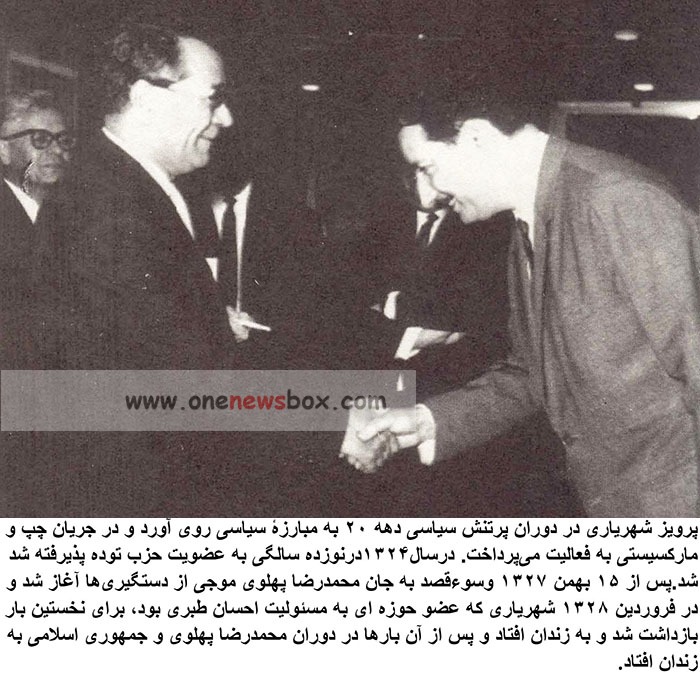Political Activism and Imprisonment
The political landscape of Iran in the 20th century was fraught with turmoil and repression, and Shahriari’s life mirrored these struggles. At the age of 19, he joined the Tudeh Party, a Marxist political organization, which marked the beginning of his political activism. His involvement with the party aligned with his belief in social justice and equality. However, his political activities came at a significant personal cost.
In 1948, following an attempt on the life of Mohammad Reza Pahlavi, a wave of arrests targeted political dissidents. Shahriari, who was part of a group led by intellectual Ehsan Tabari, was arrested in 1949 and imprisoned for the first time. His incarcerations continued under both the Pahlavi monarchy and later the Islamic Republic, as his political views and activities often clashed with the ruling regimes.
Despite the hardships of imprisonment, Shahriari turned adversity into opportunity. While in prison, he taught himself Russian in just nine months using a book, which became a gateway for him to translate important works. His first published translation, Tarikh-e-Hasab (The History of Arithmetic) by French author René Taton, was completed during his time in prison in 1950.

